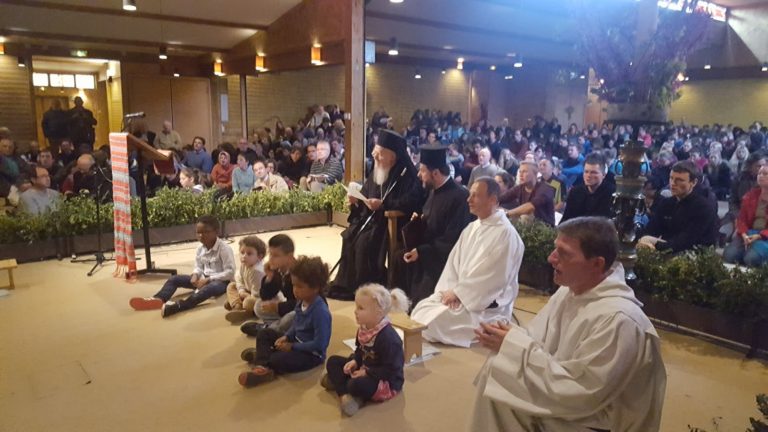
The annual European Meeting of Young Adults organized by the Community of Taizé took place For the first time, the European Meeting of Young Adults was held in Taizé and throughout the world online. The Ecumenical Patriarch Bartholomew sent the following message:
Dear young people,
The year 2020, which is coming to an end, has brought with it its share of uncertainty, suffering and sadness. At the dawn of 2021, we finally see the shining of a light, fleeting and fragile, a way out of the crisis that we will nevertheless have to wait for with patience. Such crises, especially when they are so global, reveal the fragility of our humanity and our deep dependence on this love of God that never ceases to embrace us, although we may no longer be certain of it.
We greet you very warmly and wish to compliment you for taking the time, despite the Covid-19 pandemic, to take part either in person or virtually in the 43rd European meeting organised by the Community of Taizé in a unique form. We sincerely pray that this message will find you all safe and healthy. May the Lord extend his benevolent hand over our planet and all its inhabitants in order to deliver us as soon as possible from this ordeal. In preparing these few words of greeting and encouragement, we have been invited to be more humble and modest. Each year we have the joy of sending you a message from the Mother Church of Constantinople, the Ecumenical Patriarchate, and we are overwhelmed by the sheer tragic magnitude of what 2020 has been and how future generations will judge these events.
So, in these days of renewal, when time ebbs and flows, we welcome the month of January with even more hope. For all of us want to taste what the world will be like next. However, we will only be able to gauge the extent of the ordeal we are going through by expressing our gratitude for the many sacrifices that line this pathway out of the crisis, for the incredible resilience of our brothers and sisters, as well as for the talent and knowledge offered on the altar of the common good. In other words, in the crucible of this global catastrophe the strength of a renewed hope has been forged.
“Let us lay down all the cares of this world,” we sing during the divine liturgy. The fruit of our hope depends on our ability to place our suffering and that of all humanity in the hands of the Lord. For Christ offered himself “for the life of the world”, that is to say, to take up all its smallness, limitations and mediocrity and to transfigure everything through his glorious sacrifice. In this way, the cross became a sign of hope and no longer a sign of shame. The Holy Apostle Paul proclaims: “For the message about the cross is foolishness to those who are perishing, but to us who are being saved it is the power of God. (…) it pleased God to save the believers through that foolishness which is the proclamation of the Gospel. For Jews demand signs and Greeks desire wisdom, but we proclaim Christ crucified, a stumbling-block to Jews and foolishness to Gentiles” (1 Cor 1:18-23). To hope in season and out of season is nothing other than a life in Christ to which we invite you to offer your talents. The message of the Holy and Great Council of the Orthodox Church concludes as follows: “Young people are not only the future of the Church, but also a creative force and presence. » (§11)
So we continue to pray for you and bless you. May the grace of unity shine forth in each one of you, and may it bring the hope that sustains the life of the Church, so that you may be worthy workers in the Lord’s vineyard.
+ Bartholomew of Constantinople